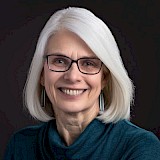I was on the phone the other day with some of my favorite recovery advocates, and we were talking about building grassroots support for various initiatives. It was exciting stuff! We even talked about a potluck to bring people from across the state together. And then one of the people on the phone said, “Look, we just need to get people with lived experience together. Forget the others.” Or something to that effect. To be honest, I wasn’t listening closely after that.
I’m an ally. I come from a family rife with substance use, but I’ve never had a problem with drugs or alcohol. So, do I have lived experience? Or not?
And does it matter? Do I have to have certain experiences to have a place at the recovery advocacy table? I certainly hope not, and I don’t think that’s what the speaker intended. In general, I have felt welcomed and embraced by the recovery community. But that comment made me think that the recovery community has some work to do around accepting allies. One way to do that is to think about language and how we refer to people who are not in recovery. I’ve been called a “normie” and an “earthling” in tones that weren’t affectionate. That created a divide between me and the people around me, and I can’t help wondering who that benefited.
So here is my ask of people in recovery. Look at your own attitudes toward allies and lived experience. If you think you have more to offer than people who are not themselves in recovery, you might have some work to do. We all have something to offer.
A few years ago, a friend referred to an ally as “someone who has come to us, perhaps by accident, and is comfortable in our tribe.” No experience needed. Anyone may apply.
Podcast: Being an Ally: Who Are We and How Do We Support the Recovery Community?
recovery ally, phoenix recovery, recovery journey
March 14, 2023
How To Be Better Recovery Allies
February 14, 2023

